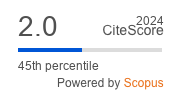Experimentation and innovation: purpose, possibilities and preferred solutions
DOI:
https://doi.org/10.23726/cij.2017.459Keywords:
Experiment, process, desired futuresAbstract
This paper explores the range of purposes for experimenting and identifies some of the patterns and processes where experimentation leads to innovation. Thematic analysis of a brief overview of literature indicates that experimentation can be understood from multiple perspectives: as a mindset, a determination to solve a puzzle or challenge, a generic research process to develop new goods and services, to explore new fields and as a core process in creating desired futures. Experimentation will increase in importance as researchers and organisations explore dynamic and turbulent environments, seeking new avenues to generate and apply new technologies, and capture their benefits.
Downloads
Published
How to Cite
Issue
Section
License
Authors who publish with this journal agree to the following terms:
- Authors retain copyright and grant the journal right of first publication with the work simultaneously licensed under a Creative Commons Attribution License that allows others to share the work with an acknowledgement of the work's authorship and initial publication in this journal.
- Authors are able to enter into separate, additional contractual arrangements for the non-exclusive distribution of the journal's published version of the work (e.g., post it to an institutional repository or publish it in a book), with an acknowledgement of its initial publication in this journal.
- Authors are permitted and encouraged to post their work online (e.g., in institutional repositories or on their website) prior to and during the submission process, as it can lead to productive exchanges, as well as earlier and greater citation of published work (See The Effect of Open Access).


